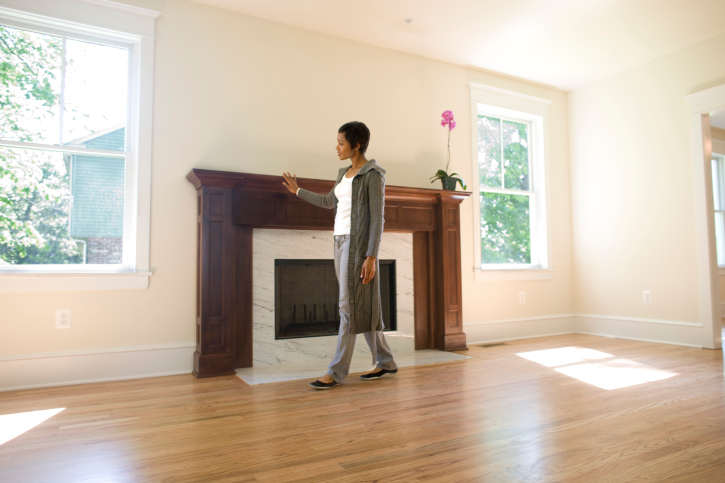 House fires can break out for a wide range of reasons, and these include everything from grease fires while cooking in the kitchen to lightning striking the home. They can cause a significant amount of property damage as well as personal injury or even loss of life, so preventing them and knowing how to properly respond if a fire does break out are important. Whether buying a new home or residing in an existing home, everyone can benefit from learning more about fire safety rules.
House fires can break out for a wide range of reasons, and these include everything from grease fires while cooking in the kitchen to lightning striking the home. They can cause a significant amount of property damage as well as personal injury or even loss of life, so preventing them and knowing how to properly respond if a fire does break out are important. Whether buying a new home or residing in an existing home, everyone can benefit from learning more about fire safety rules.
Have An Exit Strategy
Fires can break out whether residents are awake in the living room or kitchen, taking a bath or sleeping in the bedrooms. It is important to have a fire exit strategy for every floor of the home and every room of the home. In addition, it is equally important that all residents in the home understand the strategies and know how to get out.
Invest In Fire Safety Ladders
Fire safety ladders are designed to give residents a safe escape route from second story windows, and they should be placed in a convenient location in every second floor room in the home. Residents should know how to attach them securely to the window as well as how to get down the ladder safely.
Purchase A Fire Extinguisher
Generally, it is safer for residents to get out of the home in the event of a fire rather than to attempt to put the fire out, and personal safety should also come before thoughts about saving the property. However, in the event a very small fire has broken out, a fire extinguisher can provide a homeowner with a safe way to put the fire out. It is best to keep a fire extinguisher in a convenient location on each floor of the home.
Place Fire Detectors In Strategic Locations
There are codes regarding the placement of fire detectors in a home, and your trusted real estate agent can provideyou with more information about this. In many cases, homeowners may benefit from having additional fire detectors placed in strategic locations throughout the home in addition to the locations required by code.
Check Fire Safety Equipment Regularly
Fire safety and prevention equipment is only useful if it works, so it is important to test the equipment and supplies regularly. For example, a homeowner may test the batteries in a fire detector monthly and may take extinguishers to the local fire department for testing annually. These steps will help to ensure that residents have access to functional safety equipment regularly.
Residents should also know what to do if a fire breaks out in a home, and in most cases, the answer is to get out of the home quickly and to call the fire department. Attempts to save personal belongings should not be made, and all residents should know where the family will meet outside of the home in the event of a fire. Those who want to learn more about safety features in a home or about the required placement of smoke detectors can contact your trusted real estate professional for further assistance.
 When a homeowner makes the decision to upgrade flooring in one area of the home or throughout the entire space, there are numerous materials that may be considered. While each material option has its unique benefits and advantages, many are drawn to hardwood flooring as an option. This is a material that has the potential to boost home value, and a closer look at its benefits will reveal why this is the case.
When a homeowner makes the decision to upgrade flooring in one area of the home or throughout the entire space, there are numerous materials that may be considered. While each material option has its unique benefits and advantages, many are drawn to hardwood flooring as an option. This is a material that has the potential to boost home value, and a closer look at its benefits will reveal why this is the case. When a homeowner is preparing to sell a home, it can be beneficial to determine the target audience that is most likely to be interested in the property as an important initial step. In some cases, it is advantageous for a homeowner to position a home as a great rental property or investment property, but this requires the right strategy. By adopting a few niche marketing steps, homeowners can work with their trusted real estate agent to market a property appropriately.
When a homeowner is preparing to sell a home, it can be beneficial to determine the target audience that is most likely to be interested in the property as an important initial step. In some cases, it is advantageous for a homeowner to position a home as a great rental property or investment property, but this requires the right strategy. By adopting a few niche marketing steps, homeowners can work with their trusted real estate agent to market a property appropriately. There are many people wondering where the housing market is going next. While interest rates might be low, attracting a lot of buyers, there are some potential homeowners who are concerned about the current demand in the housing market. This could be driving up home prices, causing some people to pause. Furthermore, some people might be hesitant to sell because they are worried they might have a hard time finding a new home in the current market.
There are many people wondering where the housing market is going next. While interest rates might be low, attracting a lot of buyers, there are some potential homeowners who are concerned about the current demand in the housing market. This could be driving up home prices, causing some people to pause. Furthermore, some people might be hesitant to sell because they are worried they might have a hard time finding a new home in the current market. Last week’s economic reports included readings on sales of new and previously-owned homes. Weekly readings on mortgage rates and jobless claims were also released.
Last week’s economic reports included readings on sales of new and previously-owned homes. Weekly readings on mortgage rates and jobless claims were also released. If you are planning on purchasing a home in the near future, you need to make sure you have enough money saved up. While there are a lot of expenses that go along with purchasing a home, the biggest expense is the down payment.
If you are planning on purchasing a home in the near future, you need to make sure you have enough money saved up. While there are a lot of expenses that go along with purchasing a home, the biggest expense is the down payment.